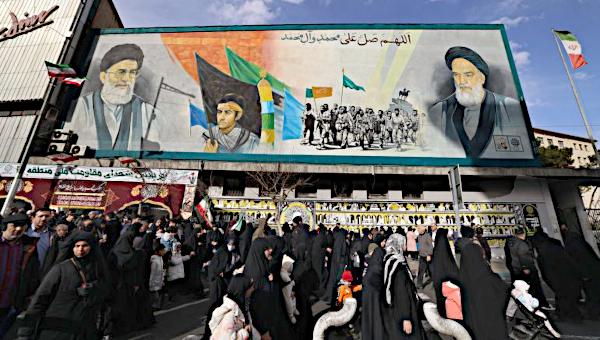
Translation of latest Khiaban newspaper lead article.
General Strike Only in Kurdistan?
by Amir K.
Khiaban #69 / Thursday, May 13, 2010
Kurdistan is a strange region. It has fought alone for decades and it is sill under occupation. Deprived, and poor. What has been done to the Kurdish people under the Pahlavi regime and the Islamic Republic is still absent from the history of Iranian society. Under the regime's nationalistic speeches and the Shiite-driven ruling system, under the bombardments, the executions, the tortures and all the butchering, a part of the society was left hidden. To this very day, Kurdistan is under the most severe crackdown. A crackdown that is not limited to the imprisonments and the executions of political activists. A crackdown that manifests itself also in the lack of investments of national wealth in that region for economic development. A crackdown that includes a ban on the right of being educated in one's mother tongue. A crackdown that has brought down the Kurdish youth from their mountainside and foothill villages to Tehran, so that they can move modern life's furniture and refrigerators, on their tired shoulders, up the stairs of residential towers. A new form of crackdown, out of whose ever-open wounds flow blood and pus.
In its economic deprivation, however, Kurdistan has built within itself the richest political fabric in the Iranian society. It is not without reason that in the aftermath of the protests to the executions of its youth [on May 9, 2010], today the entire region has gone on a general strike. This is in contrast to Tehran, where the Supreme Leader gunned down the youth in front of the whole city's open eyes, but the city did not go on a strike; although all the pillows of the fellow city-dwellers, and all lovers of freedom and justice, were soaked in sadness every night.
Maybe Shirin and Farahd were not well known by the non-Kurdish citizens (Woe unto us for not rescuing our contemporary Shirin* and Farhad*!) [Translator's note: reference to two characters from one of the stories in Shahnameh]. However, Farzad Kamangar, due to his letters from inside those dungeons of suffocation, gave us all light, and found his way to the hearts and dreams of all of Iran.
So why is it that Kurdistan has risen in a general strike, and big cities in Iran are grinding on with the hustle and bustle of daily work and making a living? A blind answer could go like this: The Persians have left the Kurds to their own devices. An answer that could lead to nationalistic and Sunni-inspired speechifying on the other side (Side? What side? Who puts me and the regime's ministers and lawyers on one side, and my comrade whose fate I share on the other side?). The real answer to this question, however, is likewise an answer to the current dead-end facing people's protest movement. The reason Kurdistan is on general strike is that there are political parties in that region that have a track record of struggling for decades. The Kurdish Organization of Communist Party (Komeleh), Democrat Party, and other Kurdish organizations of various parties call on people to join the general strike, and show a way forward for the struggle. A date gets set; a particular way of fighting is suggested, and they organize their own forces for this mobilization.
On the other hand, people in Kurdistan have grown a sense of party affiliation with particular parties. Even if not members of a party, they still identify with particular parties or political trends. Within the political sphere, people are organized. It is clear then that, with organized people and with the political intervention of political parties and organizations, a general strike can be brought about.
However, right now, although the social need exists for a general strike -- or other forms of social action, in order to transform the political system -- practically the conditions for a general strike do not exist. For a general strike [to be effective] there is a need for centers of decision-making. Certain centers or headquarters must give a call for today, or some announced day, to be a day of strike. However, just an announcement is not enough. These centers and headquarters should have a presence in the social fabric and be able to mobilize people. This means an organization not based on the Internet or the satellites, but one tied to the organizational capacities of the people. At the moment, the parties opposed to the regime are separated from the social body, and those who do have the chance/ability to be present in society have repeatedly shown their loyalty to the system.
Kurdistan can be one example of the solution for the way forward. Our society can and must move in the direction of political organization. An organizational form that is not legal, but it rises from amidst the people, and it receives its legitimacy from being steeled in the storm of the struggle for [a better future for] society.
Long live Kurdistan!
Long live social struggle for freedom and equality!
Death to the fascistic Islamic Republic!







No comments:
Post a Comment